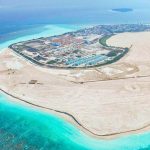
With Ramadan approaching, the State Electric Company Limited (STELCO) has announced measures to manage the anticipated rise in electricity consumption in the Malé region. This year, the holy month coincides with both the hot season and school holidays, factors expected to contribute to higher household energy use.
Speaking on PSM News’ Raajje Miadhu programme, STELCO’s General Manager, Ibrahim Nashid, outlined the steps being taken to ensure a stable power supply. He revealed that the company had ordered new generators, transformers, and switchgear last year in anticipation of increased demand. Some of the generators have already arrived, with installation work underway in Hulhumalé following the resolution of land-related issues.
Historically, electricity consumption during Ramadan sees a 15% to 20% increase, with last year’s peak demand reaching around 113 megawatts. This year, demand is expected to climb by an additional 15 megawatts, pushing peak consumption close to 130 megawatts. Nashid explained that during Ramadan, electricity usage remains high later into the evening compared to other times of the year, necessitating additional supply capacity.
Beyond short-term preparations, STELCO is also undertaking long-term infrastructure upgrades to enhance energy stability. In Malé City, existing transformers are being replaced with higher-capacity units to meet growing demand. Additionally, plans are in place to develop a 150MW power plant in Thilafushi, designed to operate on both oil and gas. This facility is expected to serve Malé and surrounding areas, strengthening the region’s energy security.
STELCO is also exploring renewable energy alternatives as part of efforts to diversify the country’s power supply. The company has initiated a wave monitoring project to assess the potential of harnessing energy from ocean waves, reflecting a commitment to sustainable energy solutions.











